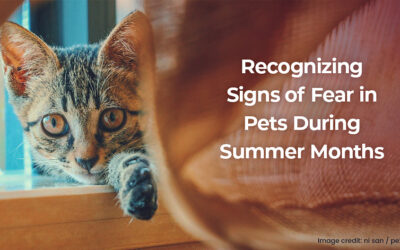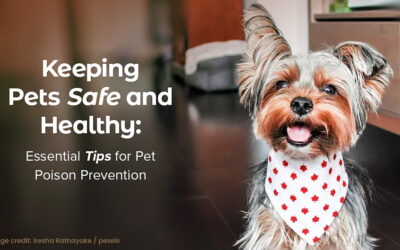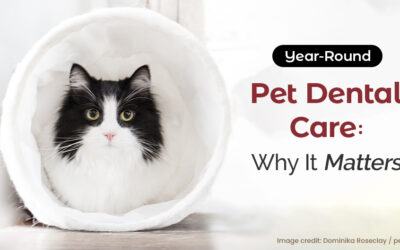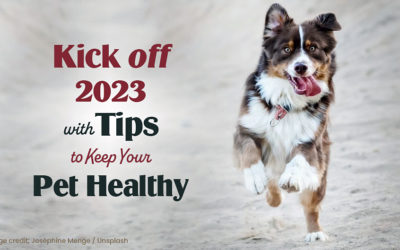Pet Health
Recognizing Signs of Fear in Pets During Summer Months
As pet owners, it's crucial to prioritize the mental and physical health of our beloved companions. One of the most common causes of stress in pets is summer thunderstorms and fireworks. During these events, pets exhibit various behaviors that indicate fear and...
Keeping Pets Safe and Healthy: Essential Tips for Pet Poison Prevention
According to the Pet Poison Helpline, every year, thousands of pets are affected by accidental poisoning. To raise awareness about common poisons and how we can prevent our pets from being exposed to them, Pet Poison Prevention Month is observed in March. Here are...
Year-Round Pet Dental Care: Why It Matters
February is Pet Dental Health Month and it’s a great time for pet owners to brush up on their pet care knowledge. Just like humans, pets need good dental healthcare. That’s why it’s important to understand the basics of taking care of your pet’s teeth and gums all...
Kick off 2023 with Tips to Keep Your Pet Healthy
As we move into the New Year, it is a perfect time for resolutions and looking at the year as a whole. Just as for ourselves, and the goals we may set, the New Year provides a moment to pause and consider how we can plan for our pet's health and wellness for the next...
5 Ways to Spoil Your Pet This Holiday Season
The holidays are a time for family, friends, and fun. But for pet owners, they can also be a time to spoil their furry friends! There are so many ways to make your pet's holiday season special. In this blog post, we will discuss five of the best ways to spoil your pet...
Update: FDA Alert on Oral Flea/Tick Preventatives
We have been able to get in touch with the FDA and some of the manufacturers of the oral flea/tick preventatives that fall into the isoxazoline class – Bravecto, NexGard, Simperica and Credelio. Here is some more clarity regarding the Alert and what it means in...
FDA Alert – Oral Flea/Tick Preventatives
On September 20th, the FDA came out with a public Alert regarding the potential for neurological adverse events related to flea/tick preventatives within the isoxazoline class – essentially all of the currently available oral flea/tick preventative products (NexGard,...
A Rabbit’s Nest! What To Do:
It's that time of year (Spring is in the air!) and the rabbits are doing what rabbits do best: breeding. This means you may come across a rabbit's nest or two in your gardens, planters or yards. Every year, wildlife rehab centers are overwhelmed with well-meaning...
Is My Pet Too Old for Anesthesia?
As a veterinarian, I am often faced with this question when discussing procedures that involve sedation and/or anesthesia. There has been a long-held notion – and a lot of misinformation around the internet, etc. – that age is an anesthesia risk. It’s not entirely a...
Why do we booster, or re-administer vaccines?
It takes energy for the body to maintain immunity against a pathogen, which is a waste in the eyes of the body if that pathogen is no longer considered a threat. Therefore, your body’s immunity against a pathogen will fade over time if it is not re-exposed or...







